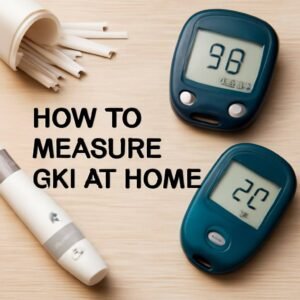Mobile home skirting is an essential investment for anyone living in a mobile or manufactured home. It provides protection against pests, enhances your home’s curb appeal, and plays a significant role in improving insulation and energy efficiency. But the question many homeowners ask first is, how much does mobile home skirting cost? In this comprehensive guide, we’ll cover everything from materials and labour costs to maintenance, local regulations, and budgeting tips effectively.
What Is Mobile Home Skirting?
Mobile home skirting refers to the material installed around the base perimeter of a mobile home to cover the gap between the home and the ground. This covering acts as a barrier that conceals the home’s undercarriage and protects the space underneath from animals, weather elements, and debris.
Skirting is not just decorative; it helps maintain the structural integrity of your home by preventing moisture build-up and reducing drafts. Without skirting, your mobile home is more vulnerable to damage and heat loss, which can lead to higher utility bills.
Why Is Mobile Home Skirting Important?
Mobile home skirting offers a range of benefits, making it an indispensable part of mobile home maintenance.
Protection from Pests and Debris
Skirting acts as a shield that keeps out rodents, insects, and other pests from nesting under your home. This helps avoid infestations that can damage wiring, insulation, and other components.
Energy Efficiency and Insulation
Proper skirting helps trap heat during the winter and keeps cool air in during the summer. This improved insulation reduces energy consumption and saves money on heating and cooling.
Enhanced Aesthetics
Skirting significantly improves the appearance of a mobile home by covering up the unsightly gaps and mechanical elements beneath. It gives a finished, polished look that can boost property value.
Prevents Moisture and Mould
By blocking moisture from entering under the home, skirting reduces the risk of mould growth and wood rot, protecting the home’s foundation and longevity.
Types of Mobile Home Skirting Materials
Choosing the right material is crucial since it impacts both the initial cost and the maintenance requirements. Here are the most popular skirting materials:
Vinyl Skirting
Vinyl is one of the most common materials due to its affordability, durability, and low maintenance. It comes in various colours and textures and resists dents and rust.
Metal Skirting
Metal, often aluminium or steel, is durable and provides excellent protection against impact and weather. It’s more expensive than vinyl and can dent,t but typically lasts longer.
Wood Skirting
Wood offers a natural, attractive finish but requires regular maintenance such as painting or sealing to prevent rot, insect damage, and warping.
Concrete Block Skirting
Concrete blocks are sturdy and long-lasting, offering excellent protection but often costing more upfront due to labour and materials.
Foam Skirting
Foam panels are insulated and lightweight, providing both aesthetic appeal and improved energy efficiency. They can be pricier and less durable in harsh weather.
Pros and Cons of Each Skirting Material
| Material | Pros | Cons | Average Cost per Linear Foot |
|---|---|---|---|
| Vinyl | Affordable, low maintenance | Can crack in extreme cold | $3 – $7 |
| Metal | Durable, weather-resistant | Prone to dents and rust | $5 – $12 |
| Wood | Attractive, natural look | High maintenance, can rot | $8 – $15 |
| Concrete Block | Long-lasting, sturdy | Expensive, heavy installation | $10 – $20 |
| Foam | Insulated, easy to install | Less durable in impact-prone areas | $7 – $14 |
Factors Affecting Mobile Home Skirting Cost
Understanding the variables that impact the cost will help you plan your budget accurately.
Size and Perimeter
The total length of your mobile home directly affects the cost. A larger perimeter means more material and labor are required.
Material Choice
Different materials vary widely in price. Selecting a premium material like concrete will significantly raise costs compared to vinyl.
Installation Method
DIY installation can save money, but may take longer and require skill. Professional installation costs more but ensures proper fitting and finish.
Labor Costs
Labour fees depend on your location, the complexity of installation, and the company you hire.
Location and Accessibility
Homes in remote areas or with difficult access might incur additional transportation and labour charges.
How Size and Perimeter Affect Costs
For example, a mobile home with a 60-foot perimeter will require 60 linear feet of skirting. If the cost per linear foot for vinyl skirting is $5, the materials alone will cost about $300. Adding installation and other fees can increase the total to $800 or more.
Material Choice Impact on Cost
| Material | Approximate Cost Range (Material Only) |
|---|---|
| Vinyl | $300 – $700 |
| Metal | $600 – $1,200 |
| Wood | $900 – $1,500 |
| Concrete | $1,200 – $2,000+ |
| Foam | $700 – $1,400 |
Labour and Installation Fees
Professional installation generally runs between $500 and $1,500, depending on home size and material. DIY can cut costs dramatically, but requires proper tools and time.
Average Mobile Home Skirting Costs by Material
| Material | Material Cost | Labor Cost | Total Cost Range |
|---|---|---|---|
| Vinyl | $300 – $700 | $500 – $900 | $800 – $1,600 |
| Metal | $600 – $1,200 | $700 – $1,200 | $1,300 – $2,400 |
| Wood | $900 – $1,500 | $800 – $1,300 | $1,700 – $2,800 |
| Concrete Block | $1,200 – $2,000 | $1,000 – $1,800 | $2,200 – $3,800 |
| Foam | $700 – $1,400 | $600 – $1,100 | $1,300 – $2,500 |
How to Budget for Mobile Home Skirting
- Measure Your Home: Calculate the perimeter accurately.
- Choose Material Wisely: Balance cost, durability, and maintenance.
- Decide on DIY or Professional: Factor in your skills and time.
- Get Multiple Quotes: Compare prices from several contractors.
- Include Permits and Unexpected Costs: Some areas require permits; also, budget for repairs or extras.
DIY vs Professional Installation: Cost Comparison
| Aspect | DIY Installation | Professional Installation |
|---|---|---|
| Cost | Lower (materials + tools only) | Higher (labor + materials) |
| Time | Longer | Faster |
| Skill Requirement | High | Low |
| Quality Assurance | Varies | Usually guaranteed |
| Tools Required | Yes | No |
Maintenance and Repair Costs for Mobile Home Skirting
- Vinyl and metal require minimal upkeep but occasional cleaning.
- Wood needs repainting or sealing every few years.
- Foam and concrete are durable but may need repairs if damaged.
- Annual inspections help catch damage early and save money.
Common Mistakes That Increase Skirting Costs
- Incorrect measurements lead to wasted materials.
- Choosing the wrong material for your climate.
- Skipping permits results in fines.
- Poor installation is causing early damage and repairs.
Energy Efficiency Benefits of Proper Skirting
Well-installed skirting reduces heat loss in winter and heat gain in summer, lowering energy bills by up to 15%. This pays off over time by improving your home’s comfort and reducing HVAC workload.
Mobile Home Skirting and Local Regulations
Check with your local building department for skirting permits, code requirements, and approved materials. Non-compliance can lead to costly fines and forced removal.
Frequently Asked Questions (FAQs)
1. How much does it cost to skirt a mobile home on average?
The average cost ranges from $800 to $2,800, depending on material and installation choices.
2. Is vinyl skirting better than metal?
Vinyl is more affordable and low maintenance, while metal is more durable but prone to dents and rust.
3. Can I install mobile home skirting myself?
Yes, with the right tools and skills, but professional installation ensures quality and compliance.
4. How often should mobile home skirting be replaced?
Typically, every 10-15 years, depending on the material and maintenance.
5. Are permits required for mobile home skirting?
Many localities require permits; check with your local building authority.
6. Does mobile home skirting improve energy efficiency?
Yes, it helps insulate your home and reduce heating and cooling costs.
Conclusion: Making the Best Choice for Your Mobile Home Skirting
Choosing the right skirting involves balancing cost, durability, appearance, and energy efficiency. Whether you opt for vinyl, metal, wood, or other materials, understanding how much mobile home skirting costs and the factors affecting it will help you make a smart investment. Don’t forget to consider installation options, local regulations, and long-term maintenance to protect your home effectively.













